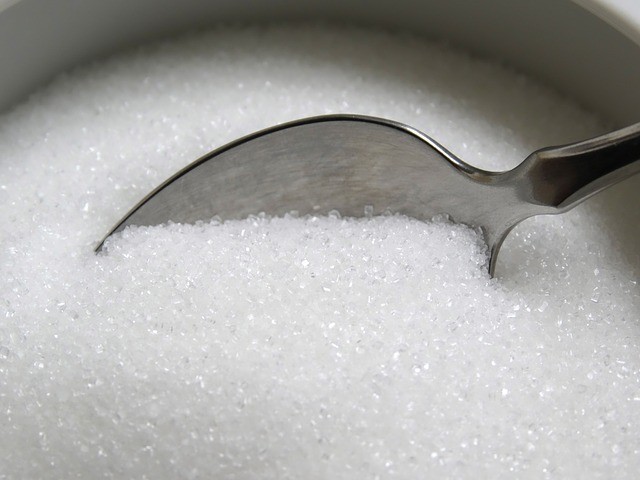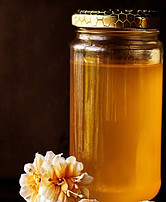 With the rise of diabetes, and other illnesses, artificial sweeteners have come into existences. Additionally, with many afraid of natural sugars, the best course of action is to choose something that is, well, unnatural.
With the rise of diabetes, and other illnesses, artificial sweeteners have come into existences. Additionally, with many afraid of natural sugars, the best course of action is to choose something that is, well, unnatural.
Aspartame is an artificial sweetener that has shown up in a wide variety of products, including many of the diet sodas. It’s used to sweeten up your food or drink without actually sweetening it with any natural sweeten – hence it being called ‘artificial’.
But numerous studies have come to find that Aspartame might not be all that we think it is. Not only is it something that might not be good, but it might even be known to cause headaches, joint pain, and even the possibility of cancer.
What is Aspartame?
While Aspartame is the more technical name for this compound, it has been known and called NutraSweet, Spoonful, Equal, and Equal-Measure.
It all started way back in the 1960s when a chemist working for the G.D. Searle Company was looking for a drug to help  fight against ulcers. While testing a few things, this chemist, by the name of James Schlatter, accidentally found out about Aspartame.
fight against ulcers. While testing a few things, this chemist, by the name of James Schlatter, accidentally found out about Aspartame.
Being approved for use of dry goods in 1981, aspartame was also approved for carbonated beverages in 1983. Originally, it was going to be approved back in 1974, but several objected to is use, including a neuroscience researcher Dr. John W. Olney.
Then, in 1985, G.D. Searle was bought out by Monsanto, and has been operating under that company ever since.
Three chemicals make up this compound called Aspartame – aspartic acid, phenylalanine, and methanol. And each of these chemicals aren’t exactly the best for your health.
Aspartic Acid. Making up 40% of aspartame, aspartic acid has been shown in studies to cause chronic neurological disorders, as well as a large variety of other acute illnesses.
Phenylalanine. With 50% of aspartame being made up of phenylalanine, this chemical isn’t something that is meant to be taken lightly. People who have used aspartame excessively have shown that they have a higher level of phenylalanine in their blood stream and in their brain.
What does this mean exactly?
High levels of phenylalanine make you levels of serotonin to decrease, which directly relates to the emotional state of your mind. With high levels of phenylalanine, you’ll have an increase of emotional disorders, like depression. Additionally, phenylalanine can be extremely dangerous for babies or those still in the womb.
Methanol. Making up the last 10% of aspartame, methanol has also been known to cause some serious problems within our bodies.
As Methanol is broken down in our digestive tract, it breaks down into formaldehyde, which is a deadly neurotoxin. This can cause headaches, buzzing in the ears, blurring of your vision, and much, much more.
What side effects can come about from using aspartame?
As shown above, aspartame can bring about a wide variety of issue, not only mild, but serious and deadly. But there are many more issues that have been linked to aspartame, and is use:
- Numbness
- Depression
- Insomnia
- Breathing difficulties
- Tinnitus
- Heart palpitations
- Irritability
- Rashes
- Slurred Speech
- Loss of taste
- Weight gain
On top of that, certain studies have shown chronic illnesses becoming worse by the use of aspartame:
- Brain tomors
- Lymphoma
- Birth defects
- Parkinson’s disease
- Epilepsy
- Diabetes
- Mental retardation
- Fibromyalgia
- Alzheimer’s
What about bad breath?
 Unfortunately, with all the look at these more major problems, very few studies have been done to look into the effects of aspartame on bad breath. This is obvious, since bad breath isn’t usually one to cause someone to die (unless it’s related to social anxiety and depression).
Unfortunately, with all the look at these more major problems, very few studies have been done to look into the effects of aspartame on bad breath. This is obvious, since bad breath isn’t usually one to cause someone to die (unless it’s related to social anxiety and depression).
But there have been one or two studies done, and while tests aren’t conclusive, it does look to appear that aspartame can cause halitosis.
This will happen because the bad bacteria, those microbes that cause your halitosis will be able to thrive and flourish in an aspartame enriched mouth.
On top of that, there has been some studies that suggest that the bad bacteria can live off of the aspartame, and actually help those smelly microbes to stay alive, rather than killing them.
Natural sweeteners to use instead
While sugar is a great choice to use to sweeten your foods, too much of it can also cause certain illnesses, or aggravate diseases. Because of that, below are just a few other ways to help sweeten your drinks and/or your foods with more natural ingredients.
- Honey

- Fruit juice
- Stevia leaves
- Molasses
- Agrave nectar
- Maple syrup
Leave The Aspartame
Whether aspartame causes bad breath or not, it is an ingredient that should be not used lightly. With this compound causing a wide host of issues within your body, it’s best to keep it away from yourself.
There is a host of all natural products, and natural sweeteners that you can use to sweeten with, as well keep your body healthy and full of life.